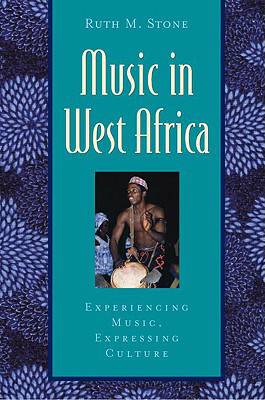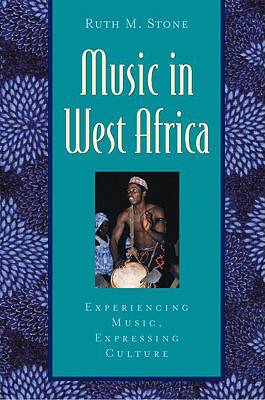
- Retrait gratuit dans votre magasin Club
- 7.000.000 titres dans notre catalogue
- Payer en toute sécurité
- Toujours un magasin près de chez vous
- Retrait gratuit dans votre magasin Club
- 7.000.0000 titres dans notre catalogue
- Payer en toute sécurité
- Toujours un magasin près de chez vous
Description
Music in West Africa is one of several case-study volumes that can be used along with Thinking Musically, the core book in the Global Music Series. Thinking Musically incorporates music from many diverse cultures and establishes the framework for exploring the practice of music around the world. It sets the stage for an array of case-study volumes, each of which focuses on a single area of the world. Each case study uses the contemporary musical situation as a point of departure, covering historical information and traditions as they relate to the present. Visit www.oup.com/us/globalmusic for a list of case studies in the Global Music Series. The website also includes instructional materials to accompany each study.
Music in West Africa presents fundamental style concepts of West African music using a focused case study of performance in Liberia, West Africa, among the Kpelle people. The book discusses the diversity, motifs, and structure of West African music within the larger patterns of the region's culture, highlighting those aspects of Kpelle music that are common to many other West African traditions. It also describes how music and dance in West Africa are tied to the fabric of everyday social and political life.
Kpelle musicians value musical performance where multiple performers each contribute aspects of sound that fit together in elaborate ways. Drawing upon her extensive fieldwork and research, author Ruth Stone--who was raised in the Bong County region of Liberia--centers on key stylistic elements that Kpelle performers articulate and emphasize: faceting or breaking music into smaller parts, layering tone colors, part-counterpart relationships in musical structures, and time and polyrhythm. She explores fascinating parallels to these analytic themes in the textiles and masks of related arts and in broader cultural practices such as greeting sequences.
Music in West Africa is enhanced by eyewitness accounts of local performances, interviews with key performers, and vivid illustrations. Packaged with a 70-minute CD containing examples of the music discussed in the book, it features guided listening and hands-on activities that encourage readers to engage actively and critically with the music.
Music in West Africa presents fundamental style concepts of West African music using a focused case study of performance in Liberia, West Africa, among the Kpelle people. The book discusses the diversity, motifs, and structure of West African music within the larger patterns of the region's culture, highlighting those aspects of Kpelle music that are common to many other West African traditions. It also describes how music and dance in West Africa are tied to the fabric of everyday social and political life.
Kpelle musicians value musical performance where multiple performers each contribute aspects of sound that fit together in elaborate ways. Drawing upon her extensive fieldwork and research, author Ruth Stone--who was raised in the Bong County region of Liberia--centers on key stylistic elements that Kpelle performers articulate and emphasize: faceting or breaking music into smaller parts, layering tone colors, part-counterpart relationships in musical structures, and time and polyrhythm. She explores fascinating parallels to these analytic themes in the textiles and masks of related arts and in broader cultural practices such as greeting sequences.
Music in West Africa is enhanced by eyewitness accounts of local performances, interviews with key performers, and vivid illustrations. Packaged with a 70-minute CD containing examples of the music discussed in the book, it features guided listening and hands-on activities that encourage readers to engage actively and critically with the music.
Spécifications
Parties prenantes
- Auteur(s) :
- Editeur:
Contenu
- Nombre de pages :
- 112
- Langue:
- Anglais
- Collection :
Caractéristiques
- EAN:
- 9780195145007
- Date de parution :
- 05-08-04
- Format:
- Livre
- Dimensions :
- 137 mm x 209 mm
- Poids :
- 172 g

Les avis
Nous publions uniquement les avis qui respectent les conditions requises. Consultez nos conditions pour les avis.






